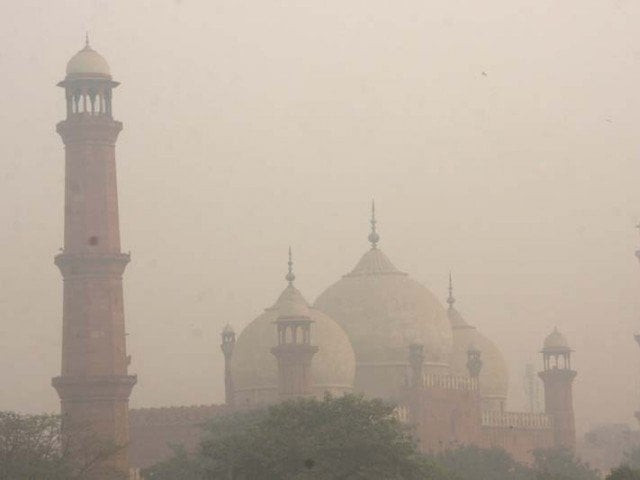‘Cross-border pollution requires regional approach’
Govt’s top environmentalist says economic cost of environmental degradation has risen 3%

Govt’s top environmentalist says economic cost of environmental degradation has risen 3%. PHOTO: EXPRESS/FILE
This was stated by Adviser to Prime Minister on Climate Change Malik Amin Aslam on Monday while speaking at a seminar titled ‘Combating air pollution for improved public health, agriculture and economy: Time to act now’. The seminar had been organised by the Sustainable Development Policy Institute (SDPI) in Islamabad.
Aslam said that the transport sector, followed by crop burning, waste burning and emissions from brick kilns and steel furnaces are the main polluters in the country and the cause of choking smog in Lahore.
The adviser on climate change further said that Pakistan also faces cross-boundary pollution issues with India, especially relating to crop burning. This requires a regional approach to address the issue.
Highlighting the need for authentic and reliable data to address the air pollution and smog issue, he stressed the need for installing additional monitoring stations around the country.
“Under the Punjab Green Development Programme (PGDP), with the help of World Bank, we are in the process of establishing around 30 air quality monitoring stations in Punjab, of which 10 will be established in Lahore alone," he said, adding that this programme is also aimed at building the capacity of the provincial Environmental Protection Agency (EPA).
These monitoring stations will provide more reliable data to make informed decisions and data will also be available to the public for awareness and preventive measures, he added. Aslam further said that under the PGDP, they were are also establishing a fund worth $50 million to help subsidise industries to shift away from pollutant technologies, which in turn will help reduce emissions.
Vehicle inspection and certification systems, under the same project, have already been set up and we are hoping to expand at a national level to help cut the emissions in the transport sector, he added.
He said that the national electric vehicle policy has already been approved by the cabinet and the country has the unique opportunity of transitioning towards e-mobility.
“We are now in the implementation phase of the policy,” he said, adding that it will help to eventually lower emissions in the country.
SDPI Environment and Climate Change Department Head Dr Imran Khalid said that air pollution is a national problem and highlighted the need to utilise atmospheric modelling techniques to understand the pathways through which air pollutants affect our communities.
He urged the need to develop an understanding of regional ‘air-sheds’ which can help devise solutions to counter trans-boundary air pollution.
In terms of mitigation, Dr Khalid cited the importance of enhancing fuel quality to make it compliant with best global practices to address our air pollution problems.
He also highlighted the importance of ensuring that Air Quality Indices of the country are in line with those developed by the World Health Organisation (WHO) or the US-EPA. This, he said, will go a long way in ensuring a comprehensive response to the crisis. Pakistan-EPA (Pak-EPA) former director-general Asif Khan said that there is a need to adopt a scientific approach towards controlling air pollution.
He also pointed to the swelling population of the country with that of Punjab alone increasing by 36 million in the past 19 years. Such a rapid increase in population has helped trigger the use of four-wheel vehicles by 268 per cent in the past 15 years, while motorbike usage has increased by 439 per cent, public transport by 167 per cent and private vehicles by 327 per cent, he added. There has been a corresponding fuel consumption increase which has resulted in greater emissions.
Published in The Express Tribune, November 12th, 2019.



















COMMENTS
Comments are moderated and generally will be posted if they are on-topic and not abusive.
For more information, please see our Comments FAQ